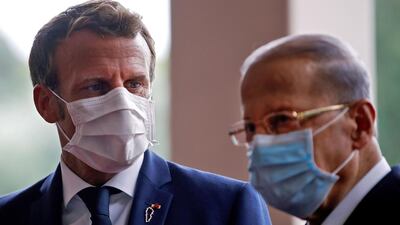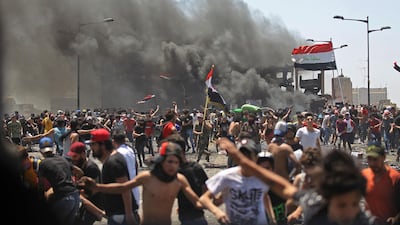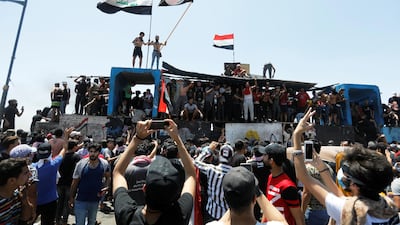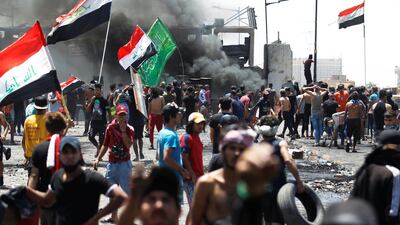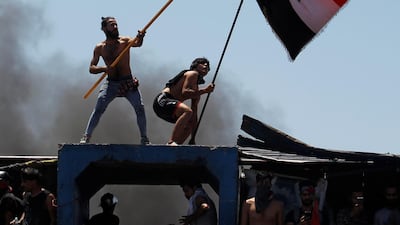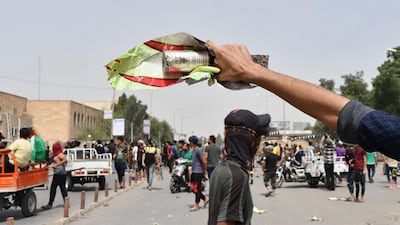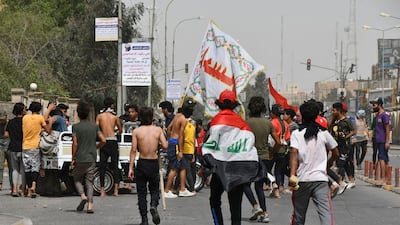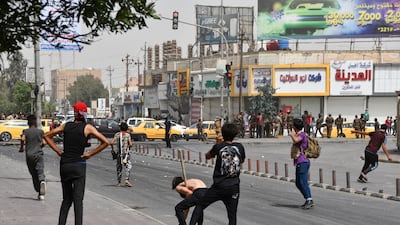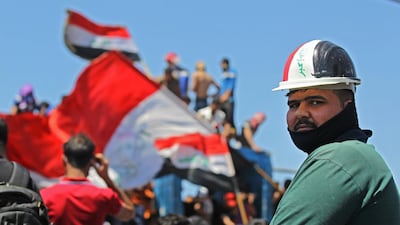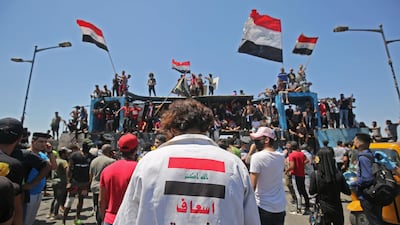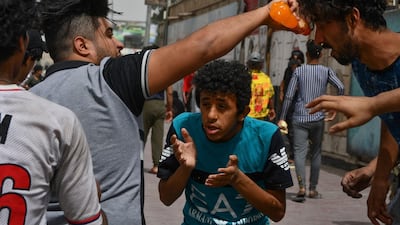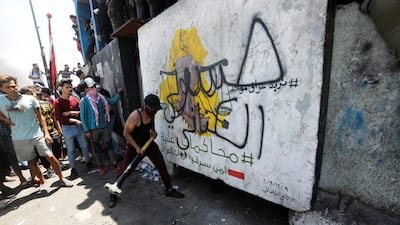France's foreign policy is not identical to that of the US in much of the Middle East and North Africa. And yet, some co-ordination in the two countries' diplomatic initiatives in the region has become evident, particularly from the recent visit to crisis-hit Lebanon by French President Emmanuel Macron, followed by that of David Schenker, the US Assistant Secretary of State for Near Eastern Affairs. How effective this co-ordination proves to be is, of course, an open question. Nonetheless, it is noteworthy.
The US has often considered French diplomacy to be more performative than impactful. But as is evidenced in recent days, that may be changing.
The Trump administration is backing France's Lebanese demarche in the aftermath of the devastating Beirut Port blasts a month ago. Indeed, there are enough signs to suggest that US President Donald Trump has encouraged Emmanuel Macron, his French counterpart, in sparing no effort to aid Lebanon – provided this does not violate the red lines the US has drawn with regard to Hezbollah, the Iranian-backed militia and political entity that wields considerable influence in the Arab country.
There certainly seems to be a difference in their respective approaches to dealing with Hezbollah. The French have avoided implicating the group for its destructive role in Lebanon's society and politics. They have even granted it legitimacy, going by Mr Macron’s recent statements. This position stands in sharp contrast to Washington's designation of Hezbollah as a terror group. The Americans are not entirely convinced that the French tactic of taking all the Lebanese political forces along with it will lead to much-needed reforms. Nonetheless, they will not come in their way.
They do agree on the need to exert pressure on the country's wider political class.
Both countries have made it clear that there would be no international or Arab aid at the level needed to rescue Lebanon unless radical reforms are undertaken to strengthen the state and make it more transparent and accountable to the people. These reforms would no doubt impact the domination of the elite, which explains its resistance against them.
A carrot-and-stick routine may be playing out in Lebanon, with Paris leading the efforts to pledge aid as Washington raises the threat of sanctions. Indeed, the US has hinted at the possibility of imposing sanctions in the coming week against powerful politicians who are allied to Hezbollah in government.
The carrot, however, may not be significant. It will certainly not come in the form of a $11 billion aid package that was pledged during the recent French-led Cedre donor conference. In fact, it is unlikely to exceed $3bn. Any rescue package worth its salt – including a bailout from the IMF, the US and Arab nations – will require Beirut to enact serious reforms. These include an overhaul of its mode of government and system of elections, and the creation of a long-term vision for the state. The production and storage of illegal arms to benefit Hezbollah and further Iran's interests will also need addressing.
Lebanon’s Prime Minister-designate Mustapha Adib will no doubt be under immense pressure to make a start on some of these reforms. He has promised to put together a line-up of technocrats – rather than the usual yes-men from the political class.
Mr Adib’s challenges are somewhat comparable to the ones Iraqi Prime Minister Mustafa Al Kadhimi is facing at the moment. Lebanon and Iraq are both in dire need to exert their sovereignty and neutrality, as regional powers battle each other for control over these two countries. Sovereignty means that the state has the sole authority over a country's territory, but this requires the top leaders of both Lebanon and Iraq to rise to the challenge.
Mr Macron, who visited Iraq shortly after leaving Lebanon, emphasised the issue of sovereignty during his meeting with Mr Al Kadhimi. Interestingly, rather than targeting Iran, the French President spoke to Turkish incursions as part of Ankara's military operations against the Kurdistan Workers' Party, members of which are said to be hiding in Iraqi territory.
France has been keen for the US to rein in Turkey over its actions in Iraq, Libya and the Eastern Mediterranean, where it is in a resource conflict with Greece. Washington's priority, however, is to preserve Turkey’s Nato membership in order to yank it out of Russia's embrace.
There has also been a gap in their strategies to deal with Iran, although that gap has reduced in recent times. Much like the Americans have done over the past three years to rein in Iran's expansionist activities in the region, French diplomats are also beginning to raise the threat of sanctions against Tehran and its partners and allies. It has to be said that, while American sanctions have a significant impact on the economies of state and non-state actors, French punitive measures are usually more symbolic than anything else.
Paris is, therefore, bent on pursuing two-track diplomacy with Tehran – an idea that Washington has chosen to be open-minded about.
Today, France has an opportunity to leave a distinguished mark in the Middle East. But for this to happen, it needs to be courageous and tough, rather than go down the road of appeasement. It has no doubt made some bold and important policy proposals to the Lebanese politicians, such as imposing a transparent and neutral tendering process for the port’s reconstruction, and addressing the allegations of corruption surrounding the Selaata power plant project – as if to state that the time of one party’s domination over Lebanon’s energy sector is over.
And yet, Mr Macron’s strong words need to be backed by a rigorous sanctions regime, if necessary, as well as strong support from the European Union. Most importantly, his government simply needs to stand up to Tehran’s regional agenda. It must avoid repeating the mistake the West and Russia made by overlooking Iran’s expansionist activities while securing the 2015 nuclear deal with Tehran.
Raghida Dergham is the founder and executive chairwoman of the Beirut Institute
